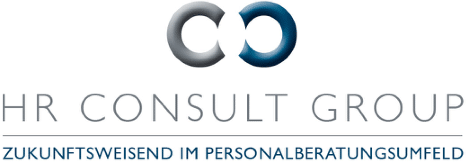In den zurückliegen Jahren ist die Volksrepublik China zu einem wesentlichen Wirtschaftsfaktor weltweit herangewachsen. Daran hat auch die Finanzkrise nichts geändert, ganz im Gegenteil. Darüber hinaus wird China aufgrund der jüngsten politischen Entwicklungen in Amerika ein zunehmend wichtiger Partner für Europa. Das rasante Wachstum in China hat sich während der politischen Turbulenzen und Unwägbarkeiten der jüngeren Vergangenheit verlangsamt – wenn auch mit einem nach wie vor überdurchschnittlichen Plus von ca. 6 % bis 7 % („das neue Normale“) – zurück. Der chinesische Markt bleibt weiterhin für deutsche Investoren und Kooperationspartner attraktiv, insbesondere wegen seines erheblichen inländischen Marktpotenzials. Umgekehrt sehen wir einen Trend, dass chinesische Unternehmen vielfach beginnen, in Europa und vor allem auch im deutschsprachigen Raum zu investieren.
Nicht nur Global Player wie Volkswagen, BASF, Bayer, Coca Cola, Henkel oder Procter & Gamble, um nur einige aufzuführen, sind im Reich der Mitte vertreten. Der deutsche Mittelstand engagiert sich mittlerweile ebenfalls sehr stark und auf vielfältige Weise. Aber ist dieses Riesenreich tatsächlich ein sich schnell entwickelnder und hoffnungsvoller Zukunftsmarkt, der nachhaltige und langwierige Investitionen rechtfertigt? China ist nicht China. Die Volksrepublik ist eine Welt für sich mit einer über 4000 Jahre alter Geschichte, verschiedenen Sprachen und Dialekten sowie unterschiedlichen sozialen Rahmenbedingungen und Verhaltensweisen. Die Größe des Landes, die allmähliche Öffnung zum Westen und rapides Wirtschaftswachstum machen China zu einem bedeutenden Wachstumsmarkt mit hoher Attraktivität für ausländische Investoren. Nach Angaben von Volkswagen ist China der wachstumsstärkste Markt weltweit. Doch nicht jedes wirtschaftliche Engagement ist von Erfolg gekrönt. Viele Unternehmen haben nicht die erhofften schnellen Renditen erzielt. Welche Fehler machen westliche Unternehmer bei ihrem Engagement in China? Wo liegen die Besonderheiten beim Verhandeln und Geschäftemachen sowie im operativen Betreiben eines Unternehmens vor Ort?
Der Mittelsmann
Westliche Geschäftsleute haben in China wenig Chancen auf einen Geschäftsabschluss ohne den Mittelsmann, auch „Zhong-jian Ren“ genannt. Dieser Mittelsmann ist mit dem spezifischen, persönlichen und reziproken Beziehungssystem, das in China vorherrscht und über ein im westlichen Sinne herkömmliches Networking hinausgeht, vertraut. Im Westen neigen wir häufig dazu, anderen so lange zu vertrauen, bis wir Grund dazu haben, das nicht mehr zu tun.
In China ist es etwas anders: Im Geschäftsleben kann man Vertrauen nicht aufbauen, da jegliche Art von Geschäftsbeziehung ohne Vertrauen gar nicht erst zustande kommt. Stattdessen muss Vertrauen mithilfe von „Guanxi“ vermittelt werden. Dieser chinesische
Begriff bezeichnet das Netzwerk persönlicher Beziehungen in China, das heißt er steht für gegenseitiges Geben und Nehmen. Das bedeutet zum Beispiel, dass ein Geschäftspartner, dem Sie vertrauen, Sie an Geschäftspartner, denen er wiederum vertraut, weitervermittelt. Der ausschlaggebende erste Schritt in China in dieser Phase der Verhandlung, die auch „Sondierungsphase“ genannt wird, hilft Ihnen, die persönlichen Kontakte zum jeweiligen Unternehmen oder Geschäftsführer herzustellen.
Ein talentierter chinesischer Mittelsmann ist auch nach dem ersten Meeting unverzichtbar. Denken Sie an das, was während einer typischen Verhandlungssitzung zwischen Chinesen und Geschäftsleuten aus der westlichen Welt passiert. Anstatt geradeheraus Nein zu sagen, wechseln chinesische Geschäftsleute lieber das Thema, verhalten sich still, stellen eine andere Frage oder antworten, indem sie zweideutige oder unbestimmt positive Ausdrücke verwenden, die einen leicht negativen Unterton haben.
Ein chinesischer Muttersprachler vermag die Stimmungen, Gesichtsausdrücke und Körpersprache genau zu interpretieren und zu erklären, welche chinesische Verhandlungspartner während eines förmlichen Treffens an den Tag legen. Häufig kann nur der Mittelsmann feststellen, was gerade passiert. Wenn ein ungeduldiger Verhandlungspartner aus der westlichen Welt wissen möchte, was die Chinesen von dem Vorschlag halten, werden diese ausnahmslos in ausweichender Weise antworten, wie zum Beispiel „Lassen Sie uns mal sehen“ oder „Lassen Sie es uns prüfen“ – auch wenn sie denken, dass mit dem Vorschlag etwas nicht stimmt. Dies ist eine der Situationen, in denen der Mittelsmann eingreifen kann, denn seine Aufgabe ist weniger die Übersetzung von Worten als vielmehr die Vermittlung zwischen den Kulturen.
Oft kommt es vor, dass beide Parteien dem Mittelsmann offen Dinge sagen können, die sie einander direkt nicht vermitteln könnten. In China bringt zuerst der Mittelsmann, nicht der eigentliche Verhandlungspartner das zu diskutierende Geschäftsthema ins Gespräch. Er kann darüber hinaus häufig auch Differenzen ausgleichen. Tatsächlich kann es einem guten Mittelsmann gelingen, komplexe Situationen und erhebliche Meinungsverschiedenheiten wesentlich zu reduzieren.




